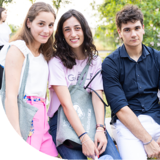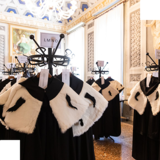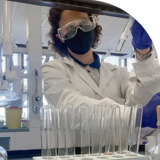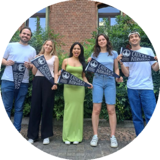Multipolar Conversations
Building inclusion through the experience of beauty (MIGRATIONS | MEDIATIONS)
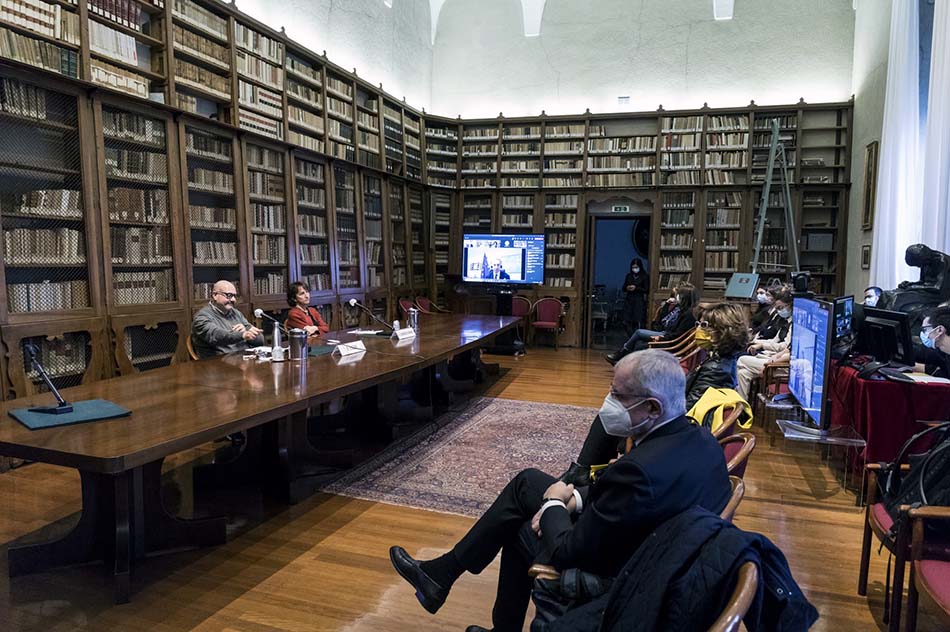
Find out more about the event: introduction and program
Beauty is the universe in which the symbolic value of the arts acquires cognitive, ethical, and social depth. In contemporary culture, the sense of Beauty has definitively moved away from the perspective of a complete, perfectly harmonious, and coherent form. Instead, it aims to embrace contingency and, consequently, the Plurality of identities, technologies, and practices through which Beauty releases its power. Nowadays, the arts and the media define a living, dynamic, and constantly changing encounter field. Their move looks capable of attesting to the diversity of both creative impulses and interpretative attitudes within.
This Conversation, therefore, aims to promote a reflection on the capacity of the arts and media's expressive languages to construct a reality of Beauty through community aesthetics, symbolic actions, and social practices which, by forging the spaces of shared living, work on the cementing of the identity and politics of the individual and the group; the fruitful encounter with and full recognition of reciprocal otherness; the construction of a plural identity typical of contemporary urban and trans-urban citizenship.
Based on the experience of the University Migrations/Mediations (Department of Communication Sciences and Performing Arts) project of interest, an attempt will be made to open questions on these topics. Beauty and Plurality pose questions that cross all multiethnic and multicultural metropolises, focusing mainly on translating the transcultural model into concrete initiatives and projects developed by cultural operators, scholars, policymakers, and native Italian and foreign origin citizens.
Panel
MEDIA COMMUNITY, RADIO, DOCUMENTARY
Nadia Bellardi, Transcultural media consultant, Community Media Forum Europe.
VISUAL ARTS
Nicola Pellegrini and Ottonella Mocellin, Visual Artists.
AESTHETICS, MUSEUMS
Nikos Papastergiadis, Director of the Research Unit in Public Cultures and Professor in the School of Culture and Communication at the University of Melbourne.
PERFORMING ARTS
Pierluigi Musarò, Full Professor of Sociology at the University of Bologna.
Chair: Professor Ruggero Eugeni
Scientific Directorate: Ruggero Eugeni, Alice Cati, Elena Di Raddo
Technical Coordination: Martina Guerinoni
Date: November 24th 2021, 2.30 p.m.
Location: Università Cattolica, Milan (Aula Negri da Oleggio)
Building a multi-ethnic climate-neutral society
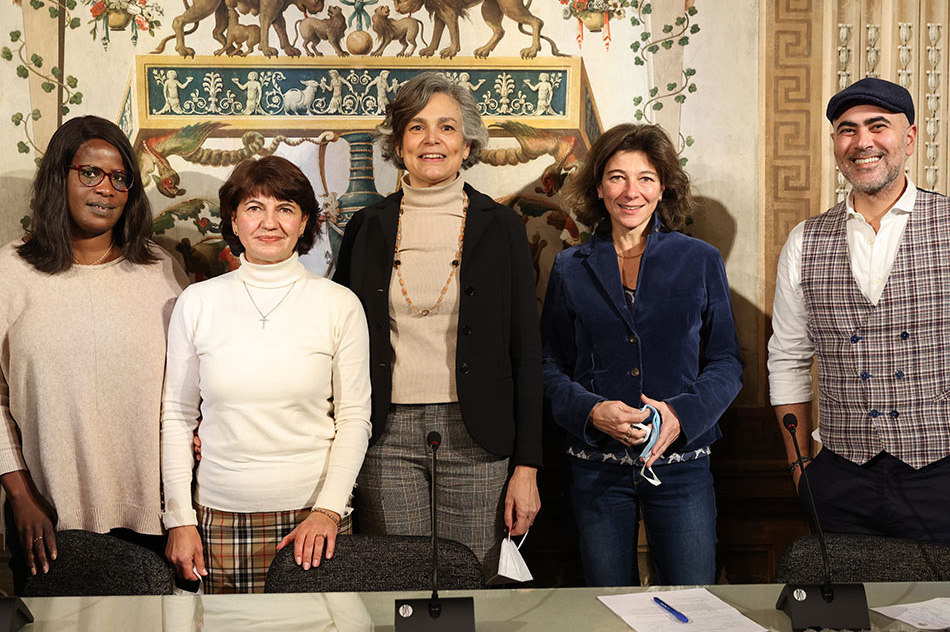
Find out more about the event: introduction and program
President von der Leyen spoke of a united Europe in three terms in her State of the Union address, on September 15th: a Europe united in adversity and recovery, referring to the pandemic; a Europe united in responsibility, referring to the ongoing climate crisis and international security; and a Europe united in freedom and diversity referring to the need to find common ground for social inclusion practices.
The multipolar conversation 'Building a multi-ethnic climate-neutral society' fits perfectly into this context. With a plural perspective, it argues the sustainability of practices of use and consumption at the level of civil society, addressing the topic of the circular economy. Moreover, in this multipolar discussion, it becomes increasingly clear that the circular economy often means the recovery of good traditions.
One wonders: how can we build a society that is both multi-ethnic and carbon-neutral? What can we learn from the cultures of origin of our fellow citizens in terms of the circular economy? What are the winning ideas that we can retain and pass on?
Our roundtable will feature four panelists from different countries and continents. They will share their life stories and memories of traditional customs and traditions, just as when everyone brings food on his own at dinner parties with friends.
4 people, 4 countries - Brazil, Senegal, Romania, and Palestine. 4 fellow citizens will meet around a table to contribute to a cleaner, fairer, more beautiful society. They will do it by recovering, reworking, and enhancing what their cultures already implicitly propose about the circular economy.
Opening
Federica Olivares, NEB Università Cattolica,
Director, International Program and Master in Cultural Diplomacy, Università Cattolica
Panelist
Awa Kane, Student Faculty of Political and Social Sciences, Università Cattolica - Brescia
Gabriela Palade, Assistant integrating disabled pupils
Simone Silva, Cultural mediator, translator and interpreter
Yias Ashkar, Restaurant Manager
Chair: Ilaria Beretta, Associate Professor in Urban and Environmental Sociology, Università Cattolica
Date: Monday 29 November, 5.30 pm
Location: Sala dell’Iliade, Brescia Campus
The Art of the Encounter: Building a Beauty that Builds an Inclusive and Just Environment
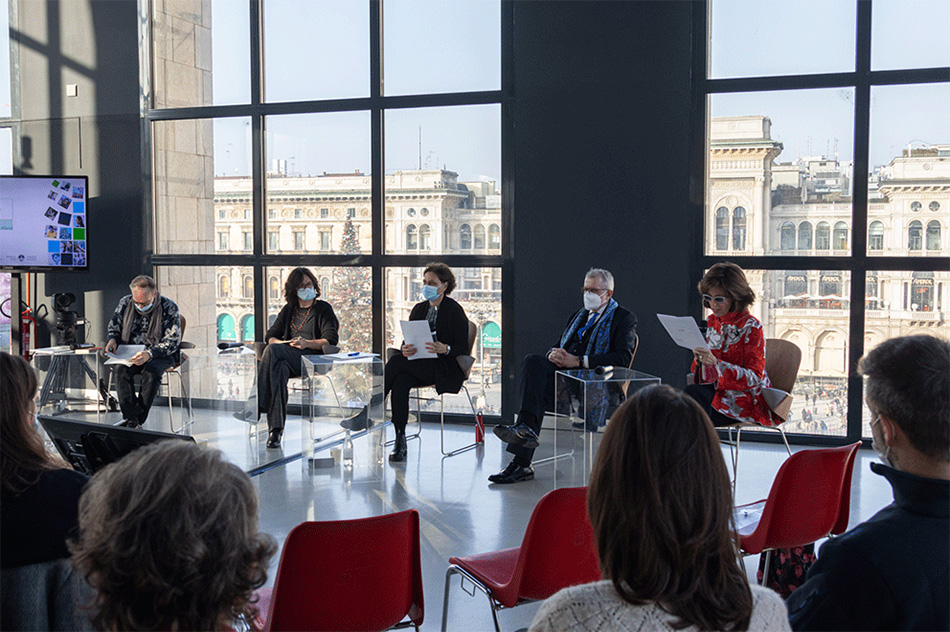
Find out more about the event: introduction and program
The conversation gathers artists, restorative justice practitioners and legal scholars to reflect on the intimate connections between art and justice, building on the speakers’ direct experiences and studies in the field of restorative justice in several settings. Restorative practices are inclusive, voluntary and participatory encounters between ‘enemies’ rooted in the creative potential of dialogue, resulting in more vital bonds between persons, groups, peoples with a particular focus on conflictual, interethnic, multicultural, urban and suburban communities.
The conversation will engage the speakers and the public in the exploration of the potential of art as a powerful but peaceful means to create inclusive spaces to communicate and reflect about injustices and quest for justice. The speakers will share their direct experience and concrete examples of how art can be an inclusive and beautiful tool to build justice after injustices, thanks to the unique capacity of art to support both expression and imagination. Without imagination no future is possible; without imagination no hope and transformation are possible either: art can therefor support highly divided persons, groups, communities and peoples to envisage a different and better future. Art, then, is a catalyst for a justice that repairs, restores and possibly heals. During the conversation, art will be the core protagonist: it will have the floor too, it will be visible, to immediately experience a… Beauty that Builds an Inclusive and Just Environment.
Opening
Gabrio Forti, Scientific Director NEB Università Cattolica, Director Graduate School
“Federico Stella” of Criminal Justice (AGSP), Full Professor in Criminal Law and Criminology
Panelists
Guido Bertagna, Restorative justice practitioner, artist and Jesuit priest, Italy
Brunilda Pali, Researcher in Social and Cultural Anthropology, KU Leuven Board Member of the European Forum for Restorative Justice, Belgium
Chair: Claudia Mazzucato, Professor of Criminal Law and Restorative Justice at Università Cattolica del Sacro Cuore; restorative justice practitioner, Italy
Date: Thursday 9 December, 2.30 pm
Location: Sala Fontana, Museo del Novecento (Piazza del Duomo, 8 - Milano)


